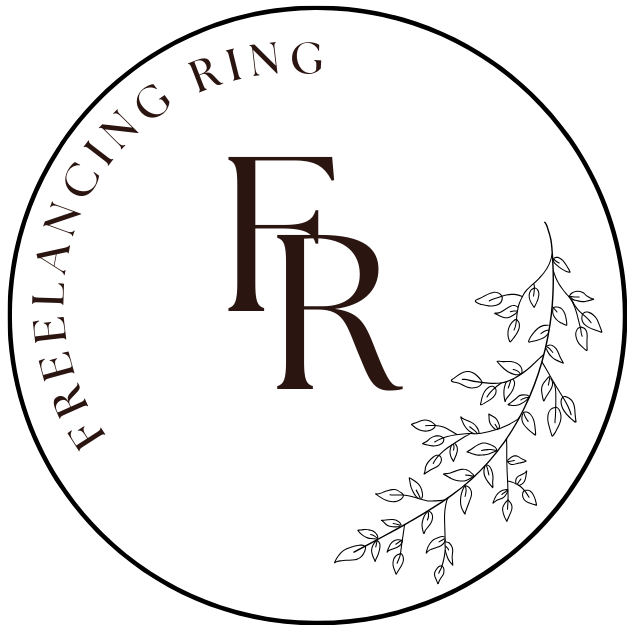I will tell you about how to start a Freelancing career in 2024 in this article. making money online through a freelancing career can be immensely satisfying.
Have you ever considered taking the initiative, setting your hours, and taking on a variety of fascinating projects? That’s precisely the main idea for freelancing, though! It’s like having your career boss.
Don’t worry if you’re interested in freelancing but aren’t sure where to begin. With all the insider knowledge and practical advice you need to start your freelance journey with confidence, this blog is here to be your go-to resource.
Introduction to Freelancing:
Being a freelancer is similar to being your boss. Freelancers work individually for various clients or firms as opposed to being employed by a single company. They work on tasks, assignments, or projects as needed, offering their services on a project-by-project basis. Freelancers can now take on a wider range of assignments and have greater control over their work and schedule thanks to this arrangement.
Independence:
Working as a freelancer releases you from a single employer. You are free to decide which clients or projects you would like to work on. There can be a great deal of freedom regarding where, when, and how you work and start a freelancing career.
Varied Work:
Independent contractors can work in several industries, including marketing, design, programming, writing, and consulting. In the domain of freelancing, there’s probably a need for your knowledge or ability.
Finding Clients:
Independent contractors must locate their clientele. To secure projects, this may entail networking, making use of web resources, exhibiting your abilities, or making direct contact with possible clients.
Managing Finances:
Setting prices for their services, sending client invoices, and taking care of taxes are all part of the financial responsibilities that fall on freelancers. Monitoring income and expenses is important.
Flexibility and Challenges:
Although freelancing allows for flexibility in terms of projects and work hours, it also presents difficulties in terms of self-discipline, inconsistent revenue, and occasionally handling challenging clients.
Developing a Reputation:
Gaining a solid reputation is important for success in the freelance world. Positive evaluations and word-of-mouth recommendations from happy customers can result in further business.
Finding a freelancing niche:

Understanding Your Interests:
Think about what makes you excited! It could be things you love doing, like writing stories, creating art, coding websites, teaching others, or anything else that makes you happy.
Assessing Your Skills:
What are you good at? Maybe you’re great at telling stories, making beautiful pictures, or using computers for technical things.
Exploring Opportunities:
Market Research.
Look around to see what people need. Check online to find out what kind of work is popular and in demand. It’s like finding out what everyone is looking to buy.
Identifying Potential Niches.
Think about combining what you love with what people are looking for. For example, if you love writing and people need technology articles that could be your special area.
Narrowing Down:
Specialization.
Instead of doing a bit of everything, think about focusing on one thing you’re good at. If you’re into designing, you might focus on creating logos or cool graphics for social media.
Making Your Decision:
-
Passion Meets Demand.
Try to find the perfect match where what you love doing matches with what people want. That’s your niche – something you enjoy and others are willing to pay for.
Building a Great Freelance Portfolio:

A freelance portfolio is like a superhero’s collection of their best missions to show off to the world. Here’s how you can put yours together:
Pick Your Best Work.
Choose your absolute favorite projects that show how awesome you are. It could be stuff you wrote, designs you made, or any project that makes you proud.
Show Off Different Skills.
Display all the cool things you’re good at! Show your range by including different types of work that you’re great at, making sure they’re top-quality examples.
Make It Look Nice.
Create a cool and organized display for your portfolio. Make it easy for people to see your work. You can use a website, an online portfolio tool, or even a PDF that looks super snazzy.
Explain Your Projects.
Tell a short story about each project. Explain what it was about, what you did, and the cool skills you used. It helps people understand how talented you are!
Keep It Fresh.
Always keep your portfolio up to date with your newest and coolest work. Get rid of older stuff that isn’t as awesome anymore and replace it with your latest achievements.
Get Your Friends’ Thoughts.
If you can, ask your friends or clients to say nice things about your work. Their positive feedback shows others that you’re good at what you do.
Share It Everywhere.
Once your portfolio is ready, show it off! Put it in your job applications, send the link to potential clients, and let everyone see it on your website or social media profiles.
Setting Up Your Freelance Business:

-
Plan Your Business:
Tell People What You Do:
Make a list of all the cool stuff you’re good at doing.
Think About Your Goals:
Imagine what you want to achieve and make a plan to make it happen.
Set Up Your Workspace:
Find Your Spot: Get a comfortable place where you can work comfortably without any interruptions.
Tools You Need:
Get the things you need, like a computer or special software for your work.
Handle Your Money Wisely:
Keep Things Separate.
Have a special bank account just for the money you earn from your business.
Make Getting Paid Easy.
Choose a simple way for clients to pay you, like using online payments.
Stay Safe and Understand Taxes:
Protect Yourself.
Think about getting insurance to keep your business safe.
Learn About Taxes.
Understand the basics of taxes you might need to pay and keep track of what you earn and spend.Show Off Your Skills:
Look Cool:
Create a nice look for your business with a cool logo or style.
Be Visible:
Make a website or profile online to show what you’re great at doing.
Make Things Clear with Clients:
Paperwork Help:
Have contracts or agreements ready. These papers help you and your clients know what to expect.
Establishing Your Online Presence as a Freelancer:

Show what you have got:
- Pick Your Platform.
Choose where you want to show your work. It could be a website, a freelancing platform like Upwork Fiverr, or social media.
Make Yourself Look Great:
- Create a Profile.
Make a cool profile that shows off your skills, like a superhero showing off their powers.
- Show Your Best Work.
Give examples of your best work so people can see how awesome you are.
Tell People About You:
- Share Your Story.
Write a bit about yourself, like what you love doing and why you’re great at it.
- Contact Info.
Make sure people can reach you easily if they want to hire you.
Be Social:
- Connect with Others.
Follow other freelancers or clients in your field. It’s like making friends who might need your skills someday.
- Post Updates.
Share what you’re working on or any cool stuff related to your work. It helps keep people interested in what you do.
Keep It Updated:
- Stay Fresh.
Keep your profile or website up to date with your latest and coolest work. It’s like showing the newest gadgets in your superhero utility belt!
Engage with Your Audience:
- Respond to Messages.
If someone reaches out, reply politely. It’s like being a friendly neighbor who says hi back!
Show Your Personality:
- Be Yourself.
Let your personality shine through your posts and interactions. People love working with real and friendly freelancers.
Effective Strategies for Finding Freelance Clients:
Let People Know you are Available:
- Spread the Word: Tell friends, family, and anyone who might need your skills that you’re freelancing now.
- Use Social Media: Post about your work and skills on platforms like Facebook, Instagram, or LinkedIn. It’s like telling everyone at a party what you’re good at.
Join Freelance Platforms:
- Sign Up: Create profiles on freelance websites like Upwork, Freelancer, or Fiverr.
- Show Your Best: Make sure your profiles shine with your best work and skills. It’s like having your superhero trading card!
Network:
- Attend Events: Go to workshops, seminars, or industry events related to your field.
- Talk to People: Don’t be shy! Chat with other freelancers or potential clients. It’s like making friends who might need your super skills someday.
Ask for Referrals:
- Ask Nicely: If you’ve done great work for someone, don’t hesitate to ask if they know others who might need your skills.
- Offer Incentives: Sometimes offering a small reward for referrals encourages people to recommend you.
Show Off Your Expertise:
- Blog or Share Knowledge: Write articles, make videos, or share helpful tips related to your field.
- Be Helpful: Answer questions on forums or social media related to what you’re great at. It’s like being a helpful superhero!
Cold Pitching or Direct Outreach:
- Send Personalized Messages: Reach out to potential clients directly through email or social media.
- Show You’ve Done Your Homework: Explain why you think you’re a good fit for their needs. It’s like showing them you’re the hero they’ve been looking for!
Follow Up and Stay determined:
- Don’t Give Up: Sometimes, clients may not respond immediately. A gentle follow-up shows you’re still interested in working with them.
Managing Finances and Setting Rates as a Freelancer:

Separate Your Money:
- Have a Business Account: Keep your freelancing money separate from your money. It helps with keeping track of earnings and expenses.
Decide Your Prices:
- Know Your Worth: Figure out how much your skills are worth. Don’t underprice yourself.
- Consider Expenses: Calculate your costs and time to decide on fair prices for your services.
Balancing Work and Life:
Set Boundaries to start freelancing career:
- Schedule Work Hours: Decide when you’ll work and when you won’t. It helps in maintaining a work-life balance.
- Take Breaks: Don’t forget to take breaks during work. It keeps you fresh and focused.
Plan and Prioritize:
- Make a Schedule: Plan your tasks and set priorities. It avoids last-minute rushes and stress.
Overcoming Challenges in the Freelance Journey:
Embrace Learning:
- Stay interested: Be open to learning new things related to your field. It helps in adapting to changes.
- Problem-Solving Attitude: Approach challenges as opportunities to grow and find solutions.
Scaling Your Freelance Business:
-
Expand Services:
- Diversify Skills: Consider learning new skills or offering additional services. It opens doors to new clients.
-
Manage Growth:
- Plan for Growth: As you get more clients, make sure you can handle the workload. Don’t overwhelm yourself.
Conclusion:
In conclusion, a freelancing career offers a unique and empowering journey filled with opportunities for personal and professional growth. With dedication and strategic planning, you can turn your freelancing aspirations into a fulfilling and successful career.
FAQs about how to start freelancing:
Q: What is freelancing?
Freelancing is working independently and offering your skills and services to clients or businesses on a project basis, without being a full-time employee.
Q: How do I start freelancing?
Begin by identifying your skills, creating a portfolio showcasing your work, and signing up on freelancing platforms or promoting yourself through a personal website.
Q: Do I need specific qualifications to become a freelancer?
While qualifications can be beneficial, but not necessary.
Q: How do I find freelancing opportunities?
Look for projects on freelancing websites, actively network on professional platforms, and promote your services through social media. Additionally, consider reaching out directly to potential clients.
Q: What skills are in demand for freelancers?
In-demand skills vary, but common ones include writing, graphic design, programming, digital marketing, and content creation. Identify your strengths and what you enjoy doing.
Q: How do I set my freelancing rates?
Consider factors such as your skill level, experience, industry rates, and the complexity of the project. Research what others in your field are charging and determine a fair rate.
Q: Is freelancing a stable career option?
Freelancing provides flexibility, but stability depends on your ability to consistently find and secure projects. Building a strong reputation and a diverse client base can contribute to stability.
Q: How do I manage finances as a freelancer?
Open a separate bank account for your freelance income, keep track of your expenses, and set aside money for taxes. Consider using accounting software to manage finances.
Q: Can I freelance while working a full-time job?
Yes, many freelancers start by working part-time while maintaining a full-time job. However, be mindful of time management and potential conflicts with your employment contract.
Q: How do I build a strong freelancing portfolio?
Include a variety of your best work samples, provide clear project descriptions, and update your portfolio regularly. Tailor it to showcase skills relevant to the type of freelancing work you seek.
Q: Is it necessary to have a personal website as a freelancer?
While not mandatory, a personal website can enhance your online presence, showcase your portfolio, and make it easier for potential clients to find and contact you.

